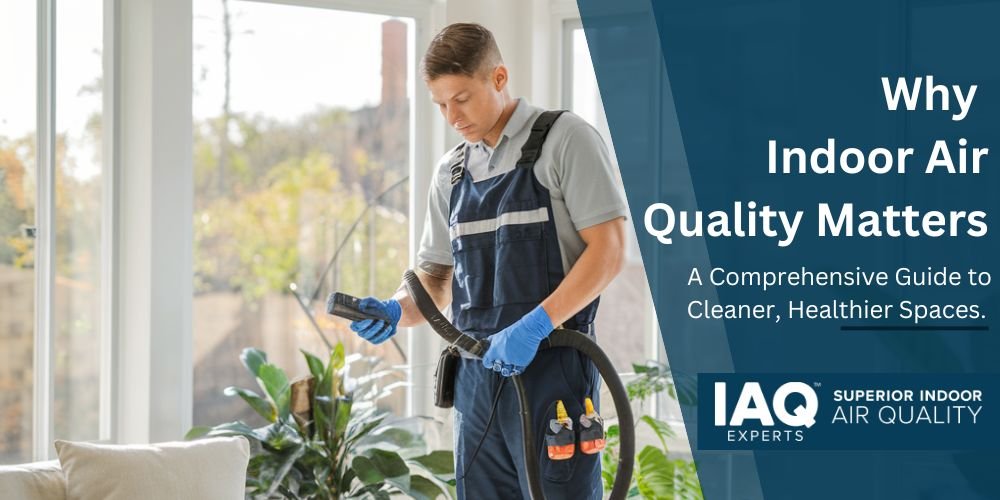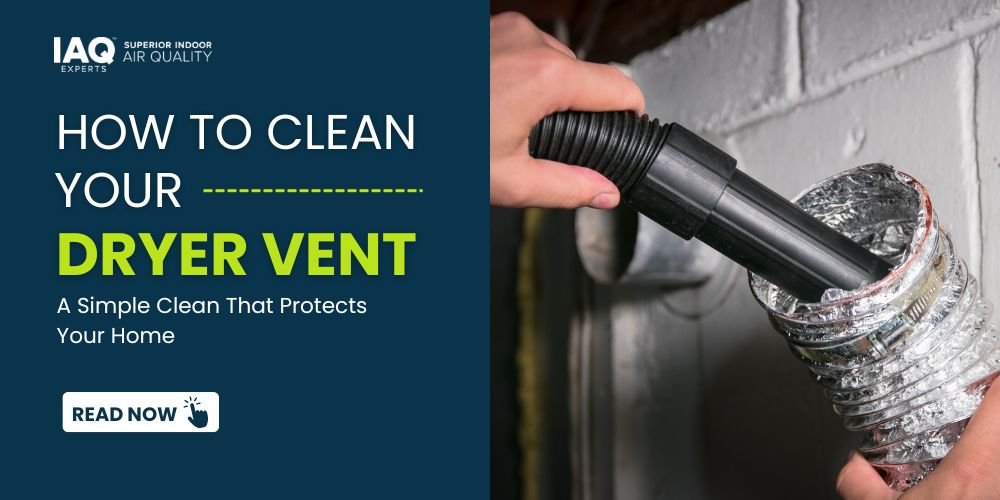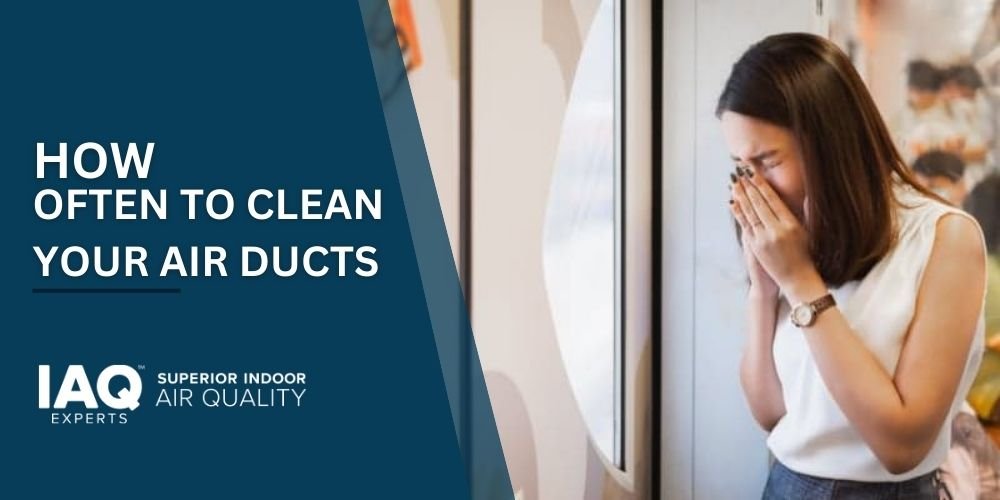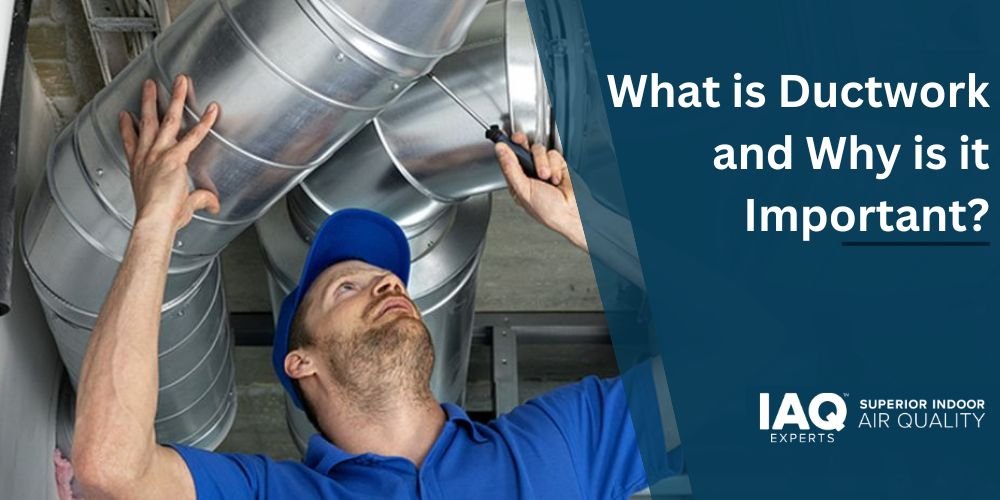Better indoor air quality has become essential for our health and the world. As people spend more time in closed spaces—like homes, offices, and other enclosed spaces—becomes necessary to understand and maintain indoor air quality. Poor indoor air quality can lead to various health issues, including mental illnesses, allergies, and deficiencies in health, which can harm daily life, attitude, and productivity.
This blog sheds light on the fundamental aspects of indoor air quality, and its importance.
Why Indoor Air Quality Matters
Indoor air quality is more than a matter of comfort. The air quality in homes, offices, schools, and other enclosed spaces can significantly impact people’s health, comfort, productivity, and well-being. Poor indoor air quality has been linked to many health problems, including respiratory infections, asthma, allergies, and, in severe cases, heart disease and even cancer.
In addition, there is impaired cognitive capacity, reduced concentration, and recollection, and the resulting decision-making potential has adverse consequences, both in terms of loss and inefficiency in either institutional learning or the work environment.
Common Causes of Poor Indoor Air Quality
- Dust and Allergens: Accumulations of dust particles, pet danders, pollen, and other allergens may worsen respiratory problems or allergies, causing discomfort and a hazardous indoor environment for sensitive people.
- Mold and Mildew: The appearance of mold and mildew due to dampness and moisture in the area creates spores that get released into the air and can cause allergic reactions, asthmatic attacks, and other respiratory complications apart from structural damage to the building material.
- Volatile Organic Compounds: Emissions from paints, cleaning agents, adhesives, and building materials send volatile organic chemicals into the air, resulting in headaches, dizziness, eye irritation, nose and throat, and long-term health effects if exposure is extended.
- Insufficient Ventilation: Poor ventilation systems cannot correctly circulate fresh air, accumulating indoor pollutants. Such stagnation could increase the concentration of toxic contaminants, decrease oxygen levels, and generally degrade air quality.
- Dirty Air Ducts: The buildup of dirt, debris, and microbial growth in air ducts blocks airflow and distributes contaminants throughout the indoor space. It degrades air quality and makes HVAC systems work harder, reducing their efficiency and lifespan.
How Air Duct Cleaning Improves Indoor Air Quality and Comfort
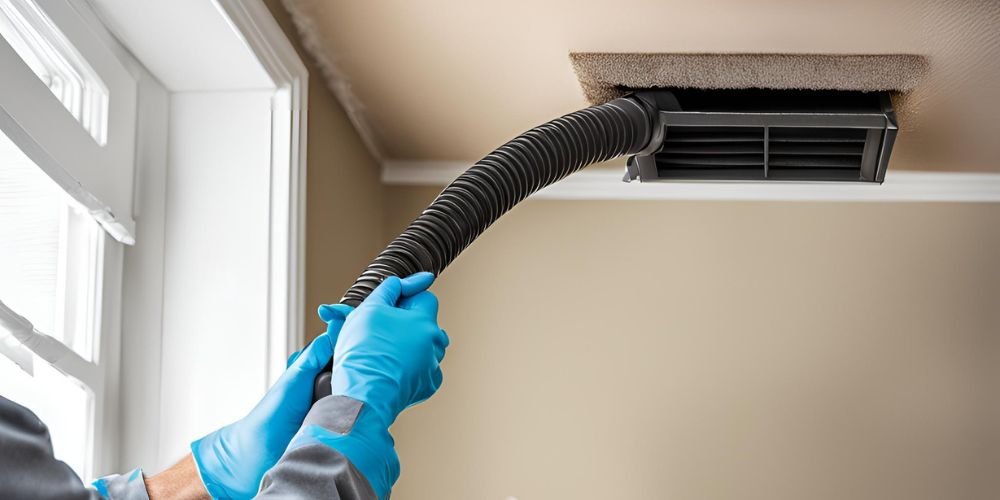
- Reducing Irritants: Regular airway cleaning effectively removes dust, pollen, pet dander, and other allergens that build up in an HVAC system and reduces indoor air concentration. It dramatically eases the discomfort of allergies and asthma symptoms for the occupants.
- Efficiency Enhancement: Air duct cleaning clears all the dust and debris inside the airways, ensuring the HVAC works more efficiently. As a result, it preserves energy, cuts utility bills, and extends the life cycle of heating and cooling equipment by forbidding excessive strain and wear from developing.
- Enhancing Air Circulation: Clean air ducts allow for better air circulation indoors, ensuring consistency in temperature and that filtered fresh air reaches each part of the space to provide comfort and improve indoor air quality.
Also, Read this: How Often Should I Invest in Air Duct Cleaning Services?
Steps to Improve Indoor Air Quality
- Regular Air Duct Cleaning: Daily air duct cleaning will help remove dust, debris, and other contaminants that may have built up within your HVAC system so that the air circulating in your house remains clean and healthy.
- Employ the Use of Air Purifiers: High-quality air purifiers, especially those with inbuilt HEPA filters, drastically reduce air particulates, allergens, and other pollutants, thus improving the overall quality of indoor air and making a place safer.
- Provide Proper Ventilation: Proper ventilation requires opening windows occasionally, using exhaust fans, and generating airflow. This facilitates the infiltration of fresh outdoor air and the removal of air that is no longer helpful and has already been polluted inside the premises.
- Humidity control: Applying dehumidifiers or humidifiers indoors will prevent mold and mildew from appearing, reduce the population of dust mites, and, in general, create unfavorable conditions for allergens and contaminants.
- Clean Regularly: Regular cleaning, such as dusting, vacuuming carpets, and washing linens, removes much of the dust, pet dander, and other allergens collected indoors, keeping the indoor environment cleaner and healthier.
- Replace Air Filters: It is crucial to change the air filters in your HVAC systems occasionally so that dust, pollen, and other particles entering either heating or cooling remain efficiently filtered.
- Eliminate Sources of VOCs: Reducing or eliminating products emitting volatile organic compounds, such as certain paints, cleaning agents, and adhesives, will support lower harmful chemical levels in the air.
Also, Read this: How do you know if your ducts need cleaning
Benefits of Prioritising Indoor Air Quality
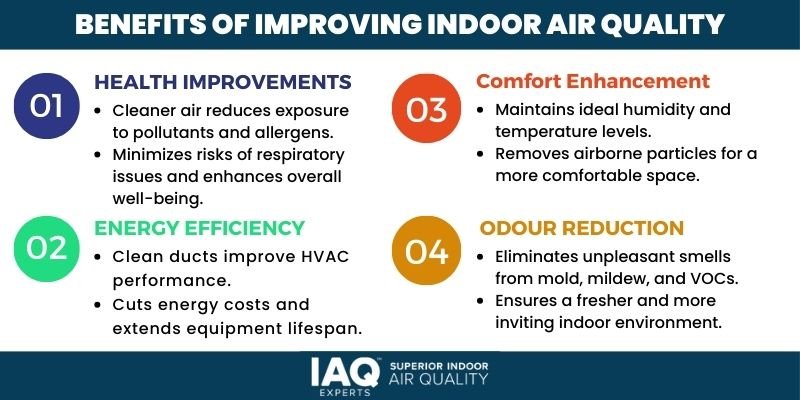
- Health Improvements: Improved indoor air quality significantly contributes to a better state of health, mainly by minimizing exposure to toxic pollutants, allergens, and contaminants.
- Energy Efficiency: High indoor quality ensures good energy efficiency, as clean air ducts and a well-operating HVAC system manage resources more efficiently, lowering utility bills for heating and cooling.
- Comfort Enhancement: Air quality means a more comfortable living and working environment, maintaining optimum humidity and constant temperatures and removing unpleasant airborne particles.
- Odour Reduction: Efficient indoor air quality management eliminates persistent and unpleasant odors by removing sources of bad smells such as mold, mildew, and volatile organic compounds, making the indoors fresher and more inviting.
Choosing the Right Professionals for Air Duct Cleaning
Choosing the right professionals for air duct cleaning is paramount. It will ensure the service is done correctly and efficiently, thus significantly improving your indoor air quality and helping you maintain a healthy living environment.
While searching for a service provider, it is crucial to check their certifications and credentials to ensure that they follow industry standards and are well-equipped to deal with different HVAC systems precisely. That can help make an informed decision based on other people’s past experiences.
With IAQ experts, you get specialist knowledge and advanced cleaning techniques with an eye on the best result, thereby assuring you of cleaner and healthier indoor spaces at home or in the workplace.

